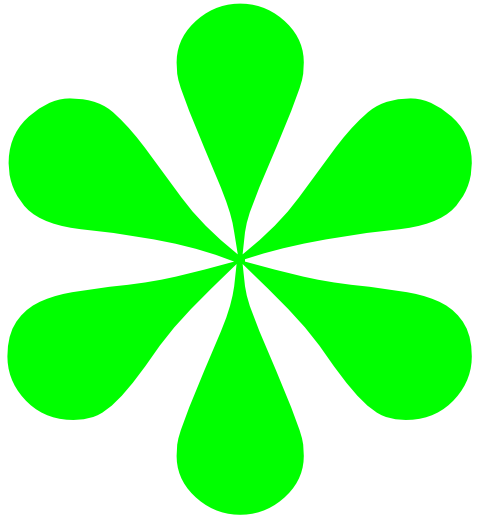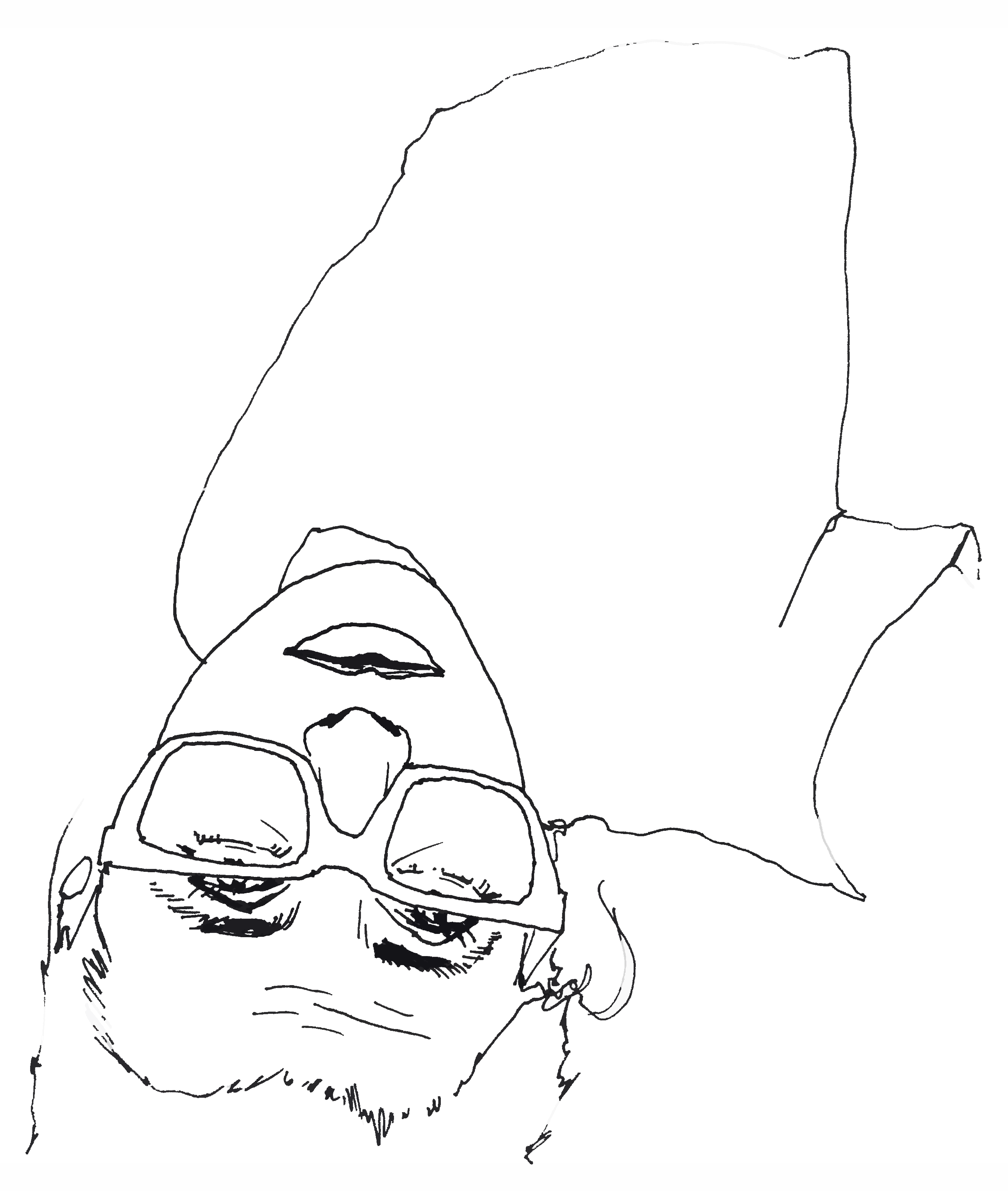JULIA FRANK
MULTIMEDIA ARTIS
BIO. Frank’s artistic practice questions, analyzes and portraits the urgency of systematic rehabilitation. The central theme in Frank’s questioning is the nature of conflicts, those in which the individual or the collective play a crucial role in the animation of such. No environment, can exist without its contributing member/s.Through the use of various media and research based components on topics like identity, corporeality, perception and social norms, abstract concepts take an inviting shape for the viewer to engage. Creating the potential to contribute to the conversation and questioning at will.
#COMMONS #IDENTITY #MATERIAL #INSTALLATION
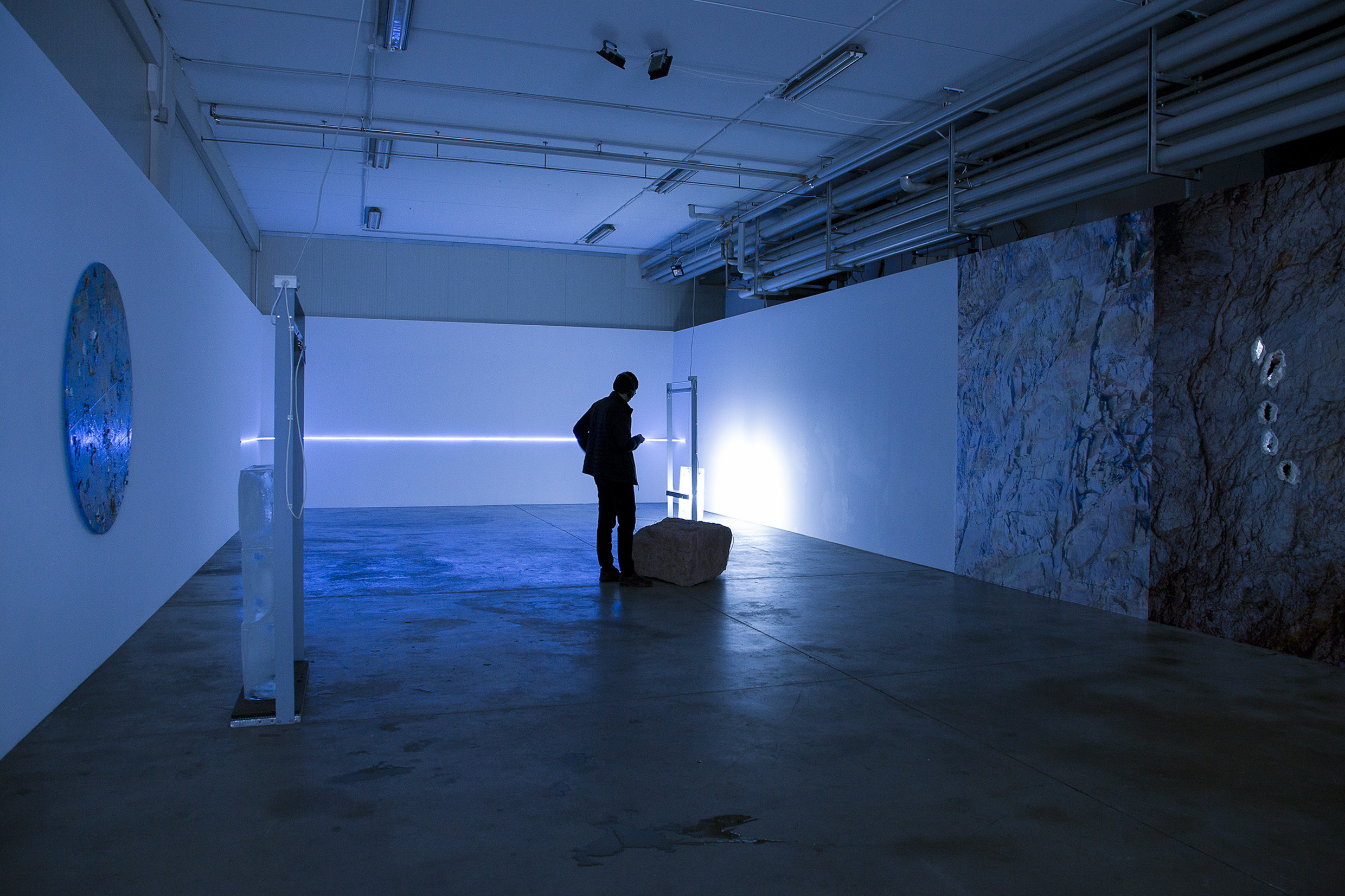
Fine Corsa (Exhibition View) (2020)
Installation
(Part 1, Text by Stefano Riba) Geodes are small cavities in rock, which are generally spherical or ovoidal in shape and lined with crystals. In Italian the word, geode, may be either masculine or feminine, and its etymology derives directly from the primordial goddess Gea, Geo or Ge, the earth mother, in ancient Greek Γῆ, or Ghê. Julia Frank’s exhibition Fine corsa (End of the road) opens with a large curtain printed with the image of a blue eye, which looks like the earth (Gea) seen from space. Behind the initial diaphragm, we find ourselves in an artificial geode containing both the cosmogony, the birth of the universe, and the cosmagony, its death. Inside it, instead of crystals the artist grafts decomposing synthetic films, melting contaminated ice, words evoking change (of habits and climate), and luminous diodes (in the past it was the godhead who brought light, now it is LEDs)
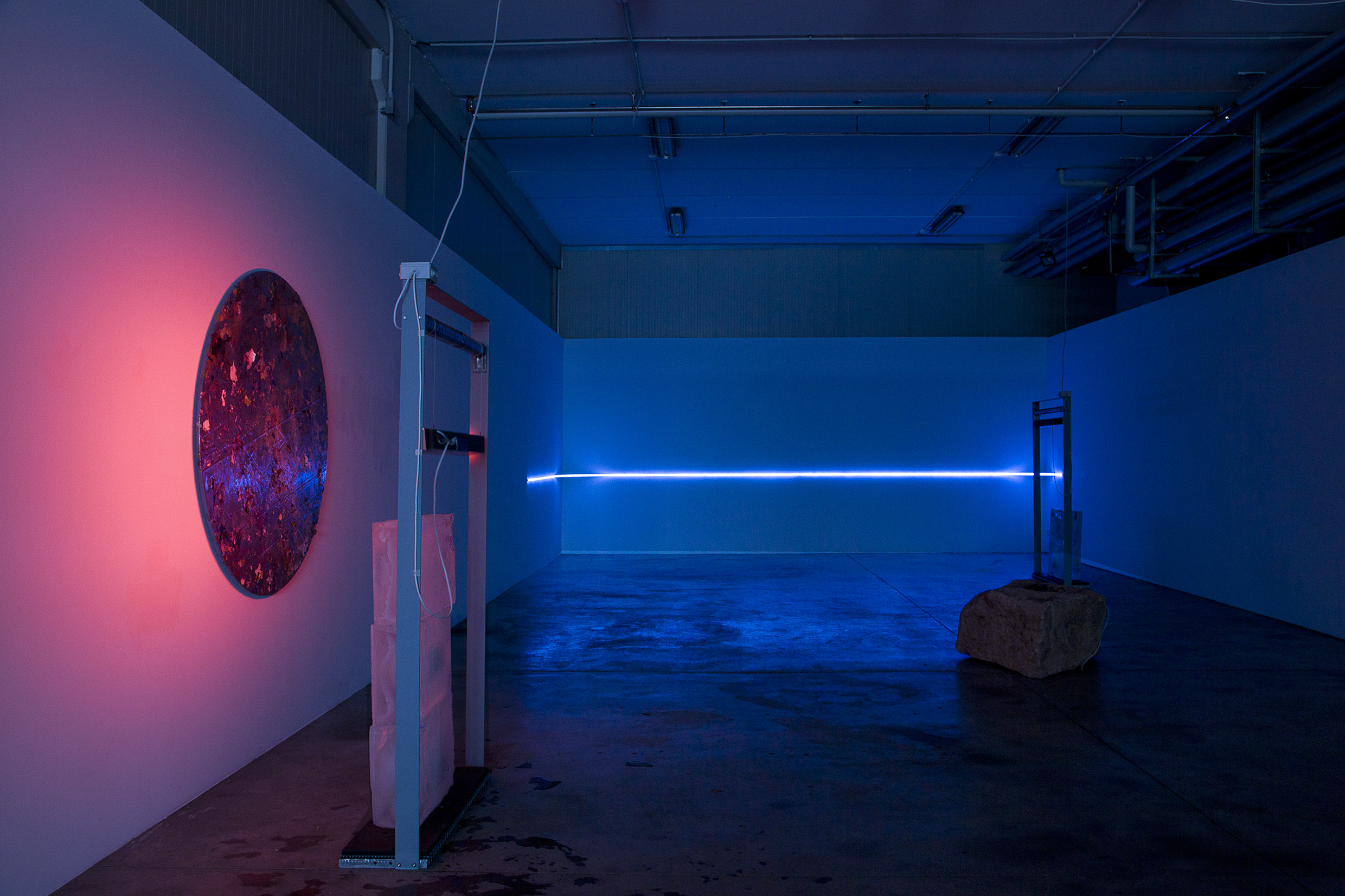
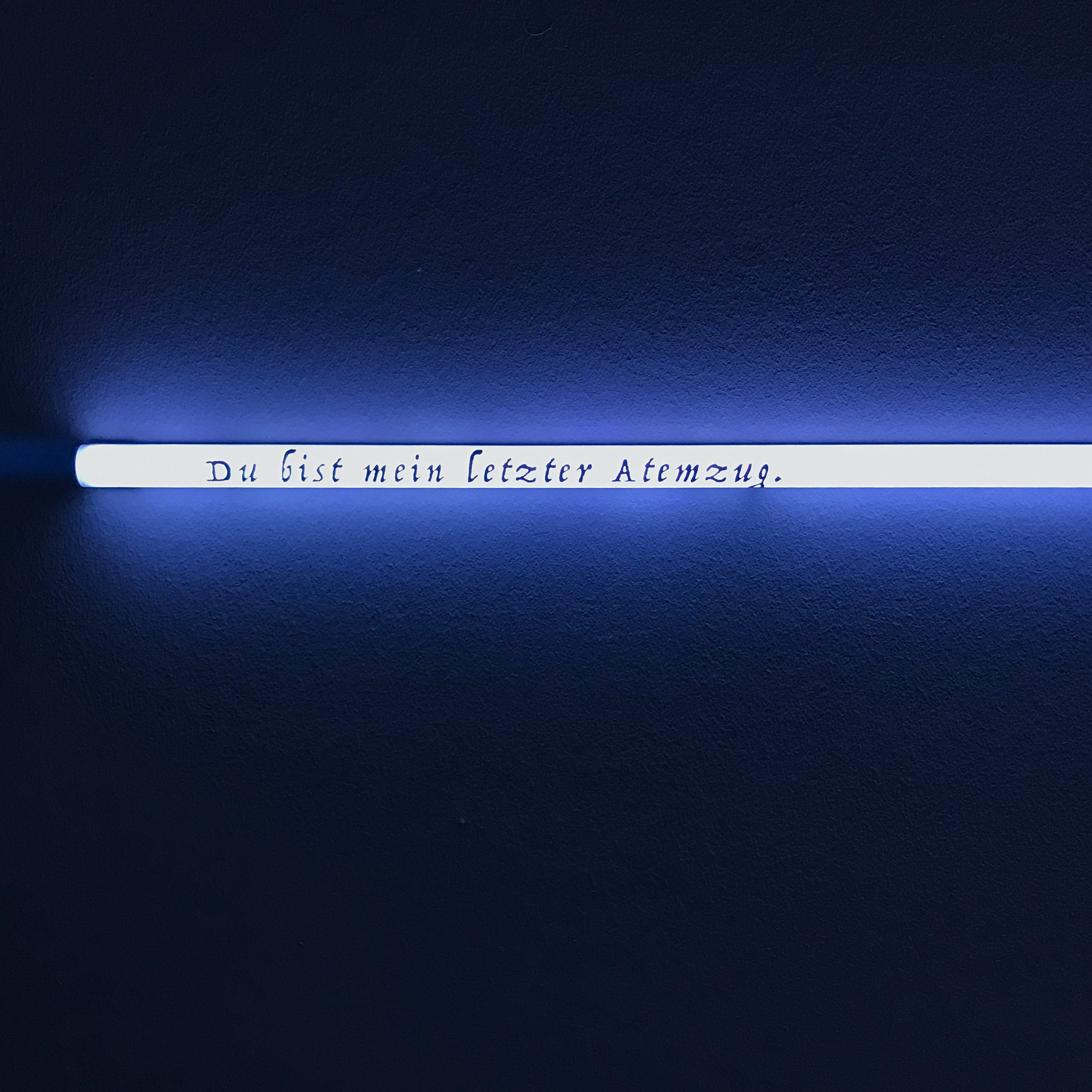
Photos: © Julia Frank
The Time Is Now (Fine Corsa) (2020)
Installation
(Part 2, Text by Stefano Riba)
But eventually a natural element emerges from the synthetic panorama of Fine corsa: a crystal. Special conditions of temperature and pressure and the presence of fluids and che- mical-physical elements are essential for them to form. It also takes time, a great deal of time. In short, what is necessary is the same mixture of elements that generated human life. For cosmagony, on the other hand, all it takes is a little poetry, a little time and a little attention. This is precisely why the crystals are kept in a crack in the wall, which can be seen but not touched. For whatever human beings touch risks being ruined irreparably. The purity of the mineral thus indicates a possible way to salvation or, on the contrary, reminds humans of their impurities.

Photos: © Michael Strasser
FC / Ice White (2020)
Sculpture
(Part 3, Text by Stefano Riba)
One leaves Julia Frank’s geode exhibition fascinated and puzzled. It is a bit like visiting the (real) geode of Pulpì, the largest in the world, where a notice at the entrance warns that in order to protect the crystals from deterioration admission is limited to a certain number of visitors and that the temperature, humidity and carbon dioxide levels are controlled and kept stable by a specially designed system. In order to see a wonder of nature, human beings have broken biological balance but have reconstructed it artificially by pretending that nothing has been broken at all, not knowing how long this fake balance will last.
How long will the illusions we have created last?
This is the question that Julia Frank asks us in this exhibition
